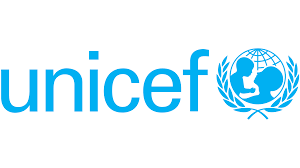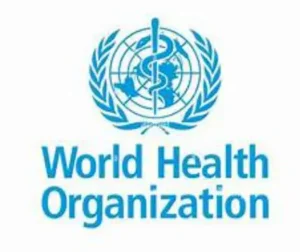FG, UNICEF collaborate to Provide 2 PHCs per ward – Official

Unicef
The United Nations Children’s Funds (UNICEF) has said it intends to support the Nigerian government with the provision of two Primary Healthcare Centres (PHC) in each ward across the country.
The Chief of Public Health UNICEF Nigeria, Eduardo Celades, disclosed this while addressing journalists at a media dialogue on Immunisation and Vaccine in Kano on Thursday.
He said this is to improve access to quality health services and the coverage of vaccination and immunisation among infants and young children in the country.
“We are supporting the Federal Ministry of Health with its current plan which should be launched soon to construct at least 2 PHCs per ward,” he said.
He said the goal is to get more than 16,000 fully operational health centres across the country.
“We at UNICEF, as partners, are committed to supporting this effort under the guidance of the ministry,” he said.
Lagosbusinessnews earlier reported that the federal government had earmarked N260 billion to revitalise the PHCs across the country.
According to the Coordinating Minister for Health and Social Welfare, Mohammad Pate, the financial injection would address several challenges faced by primary healthcare centres, including inadequate infrastructure.
Mr Eduardo said the increased functional PHCs would improve the availability of health services to the people and the immunisation and vaccination of children across the country.
“We know that vaccines save lives. Now, we are celebrating 50 years since the programme of immunisation started in the world and Africa and our research has shown that the programme has saved about 154 million lives.
“So we know that vaccines work. This means about 10 billion years of lives have been saved, especially against measles. That’s massive,” he said.
However, the UNICEF official noted that the progress in immunisation coverage has dwindled due to the hesitance to vaccination amongst people.
Mr Edurodo said there are still a high number of children yet to be administered vaccines of any kind, the zero-dose children, across the world.
In Nigeria, he noted, more than 2 million children are yet to be administered vaccines and are exposed to different kinds of viruses.
“We need to address vaccine hesitancy. The rumours, the misinformation, and disinformation. It is going to be the most limiting factor for Nigeria in the next five to 10 years for immunisation if we don’t do anything,” he said.
“Soon, it is not going to be an issue of supply but of demand for the vaccine.”
Also speaking at the event, Chisom Jeff-Obi, the chief executive director of Brook Insight, an organisation focused on promoting health and development through research, said Nigeria has a history of disruptive vaccine hesitancy which seems to be thriving further.
She said the hesitation of the population is caused by a lack of knowledge, misconception about the vaccine, negligence of the parents, poor service delivery and in some cases, poor attitude of health workers.
Ms Jeff-Obi said Nigeria has also grappled with vaccine hesitancy resulting from misinformation and loss of public confidence.
For instance, she noted, the oral polio vaccine rumour led to a boycott of polio vaccination in Northern Nigeria in 2003 and that the rumour that the military was vaccinating schoolchildren with the monkeypox virus led to vaccine refusal in the South-East in 2017.
“The immunisation coverage in Nigeria is regressing,” she noted, adding that; “The National Immunisation Coverage Survey (NICS) revealed that only 56 per cent of the children received the third dose of the Penta vaccine.”
According to the UNICEF Chief of Field Office in Kano State, Micheal Banda, managing vaccine misinformation is crucial to combating vaccine-preventable diseases among infants and young children in the country.
He pointed out that while efforts have been made to increase awareness, disinformation remains a major opponent to improving the coverage of vaccination.
“Poor knowledge and concerns about vaccine safety, side effects, and efficacy are the reasons for the lack of vaccination. Also, misinformation continues to undermine people’s confidence in vaccines,” he said.
Mr Benda called for increased media coverage and more enlightenment of the population on the importance of vaccination.
“Unvaccinated children are extremely vulnerable to immunisation-preventable diseases such as polio or measles and this is unacceptable,” he said.
He also stated that functional PHCs that provide health services to mothers and children are crucial to improving vaccination coverage.
He said: “Experiencing good and sustained economic growth which are priorities for Kano State and Nigeria as a whole depends on the adequate investment in good health.
“UNICEF will continue to support the government in ensuring that quality healthcare is provided to everyone and its goal is to ensure there are PHCs.”









